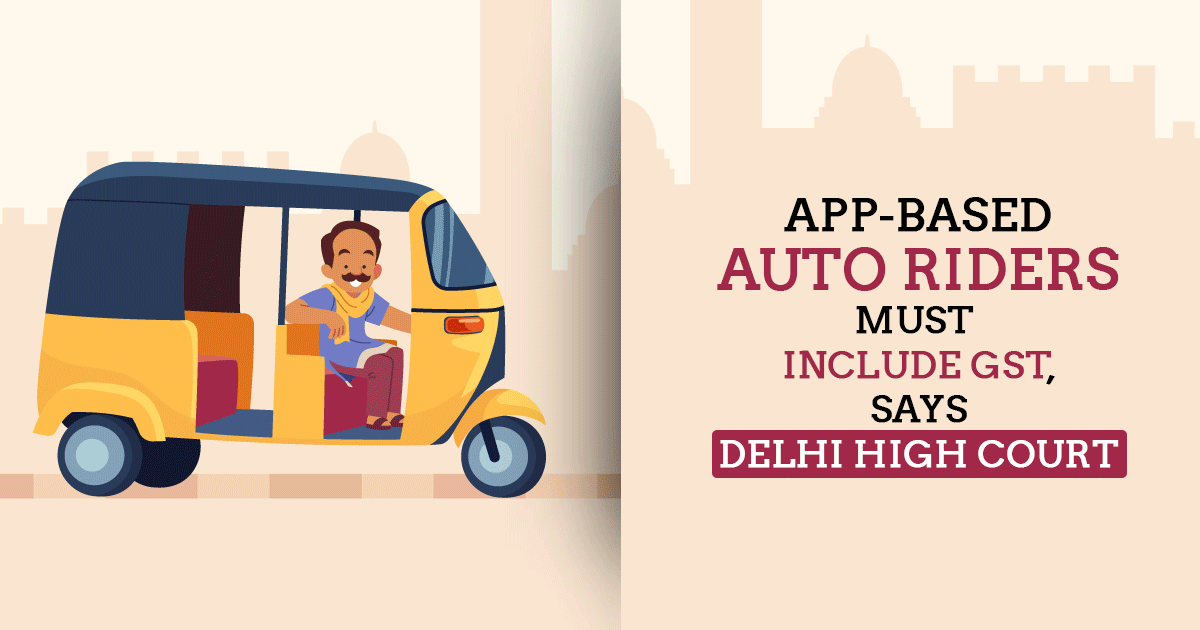
In an issue, cab booking through mobile apps like Uber and Ola, the Delhi High Court on Wednesday upheld the central government’s decision of imposing GST on auto rickshaw rides that are booked through ride-sharing apps by passengers.
Holding that the decision to charge GST did not violate any fundamental rights, a division bench comprising Justices Manmohan and Manmeet Pritam Singh said that it is explained in the provisions of the GST Act to classify service providers as separate and distinct. There are many reasons to use classification to achieve certain objectives.
The HC rejected Uber’s petition challenging the imposition of GST, finding that the classification of e-commerce companies as covered by the Act prevented any unjust challenged notifications.
On the basis that raising the charges for auto rickshaw rides on the app would have a major negative impact on the industry, Uber India questioned the November 2021 notifications.
Read Also: No GST Levy on E-commerce Firms for 3rd Parties Cab Services
Uber said that the announcement was unfair because the Center had no plans to impose GST on auto rickshaw rides booked using offline methods and local auto fare costs were still competitive. It added that there cannot be any variation in the way the GST is levied between services offered through mobile platforms and those offered offline by auto rickshaws.
| Case Title | Uber India Systems Private Limited Vs Union of India & Anr |
| Order No. | W.P.(C) 14048/2021 |
| Date | 12.04.2023 |
| Petitioner | Mr Bharat Raichandani with Mr Arjyadeep Roy, Advocates. |
| Respondents | Mr Asheesh Jain, Mr. Adarsh Kumar Gupta, Mr Keshav Mann, Mr Abhishek Khanna, Mr. Aditya Singla,Mr. Yatharth Singh & Ms A. Sahitya Veena |
| Delhi HC | Read Order |








